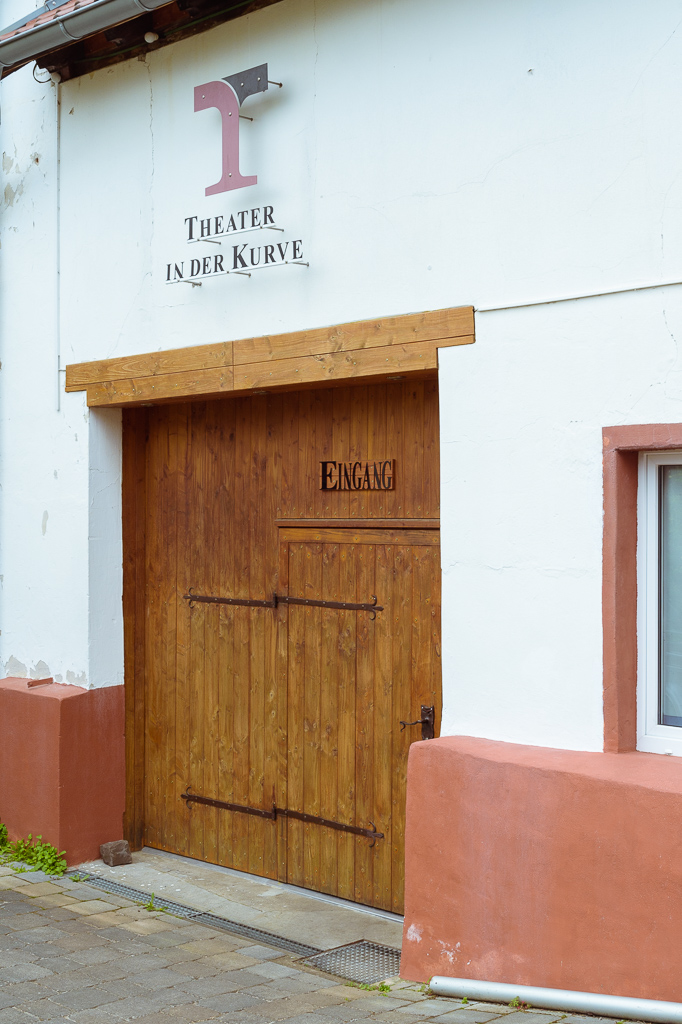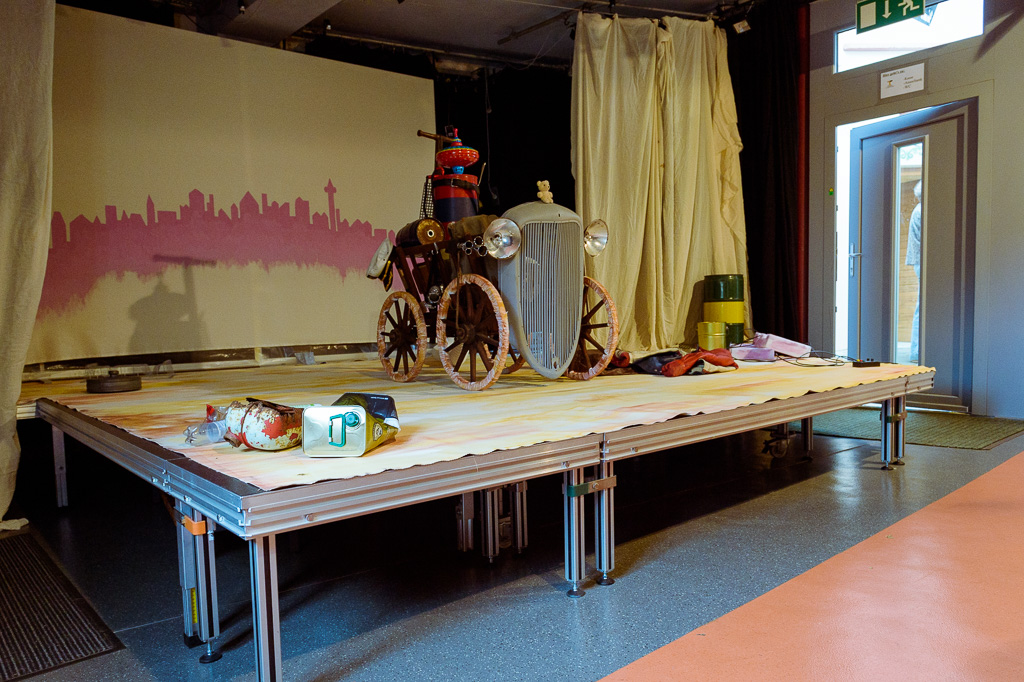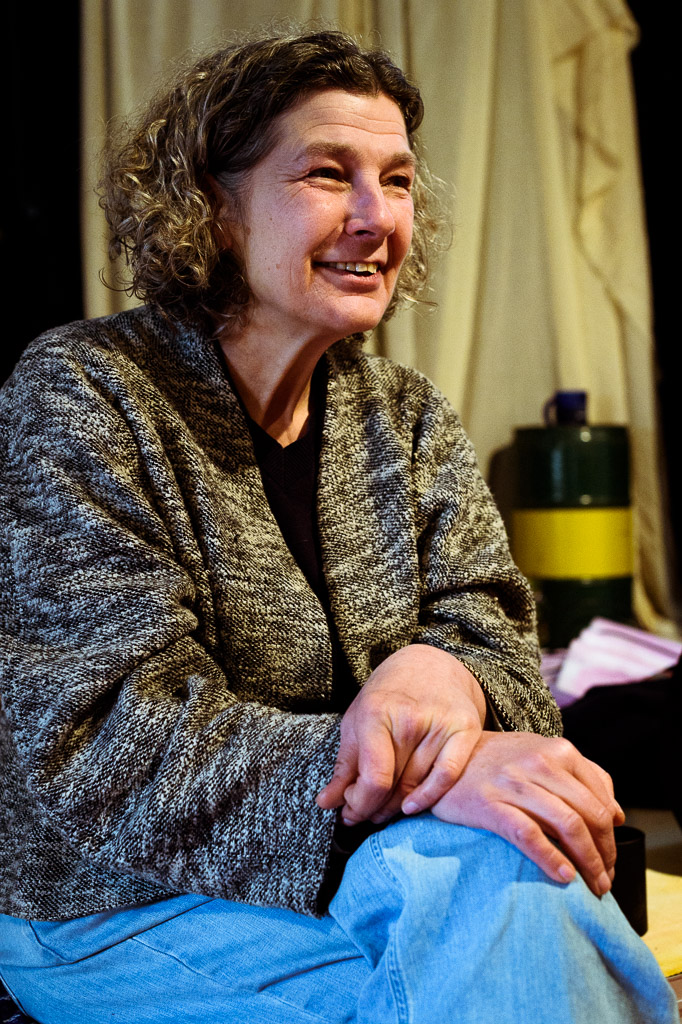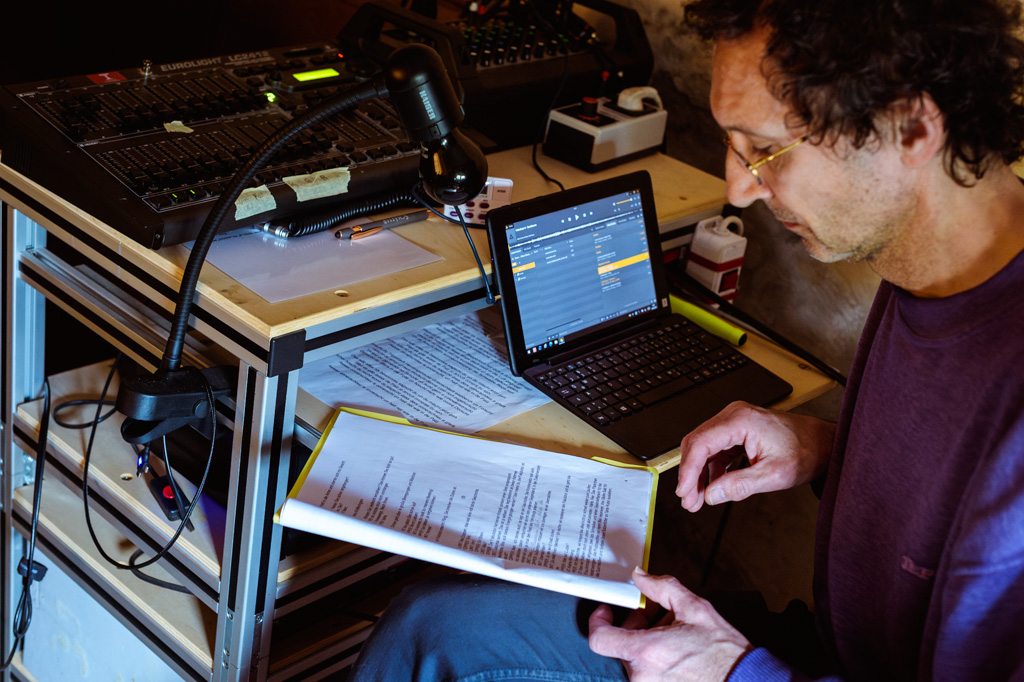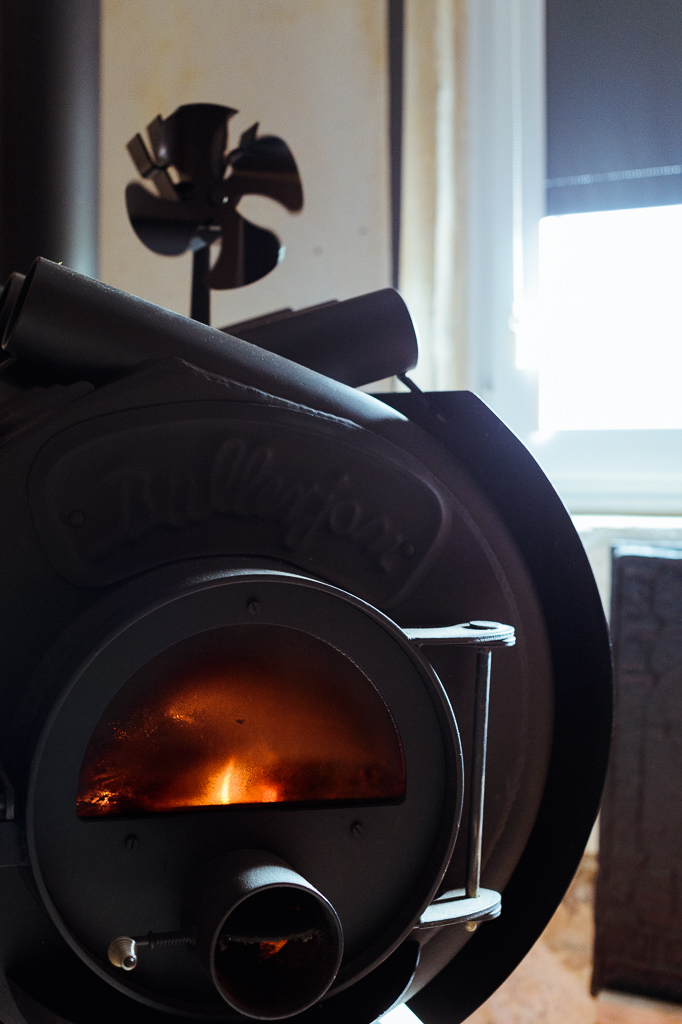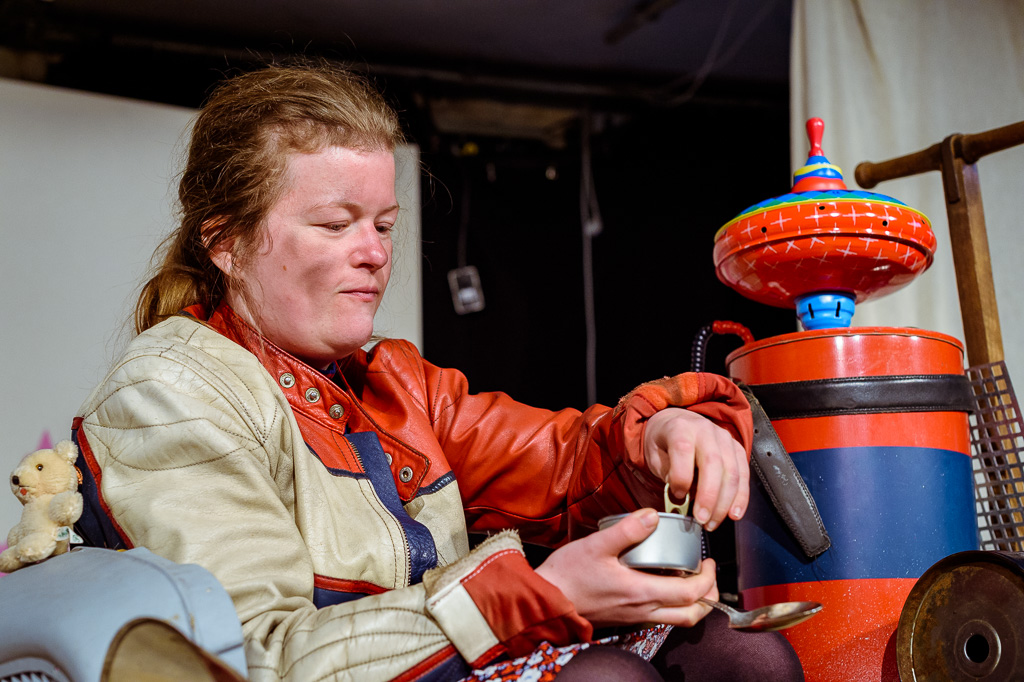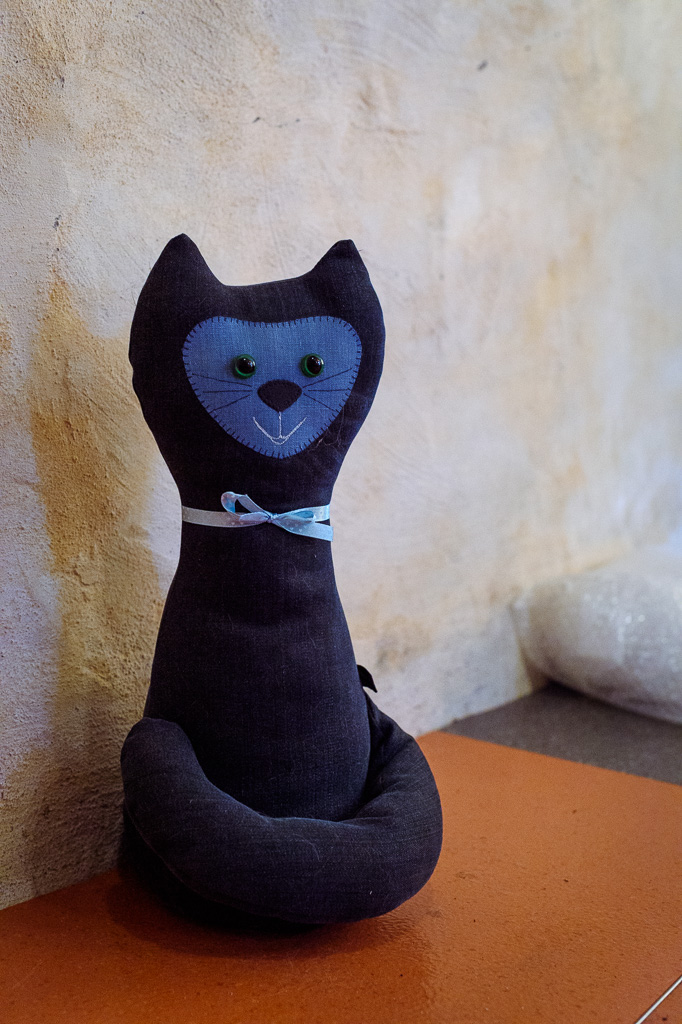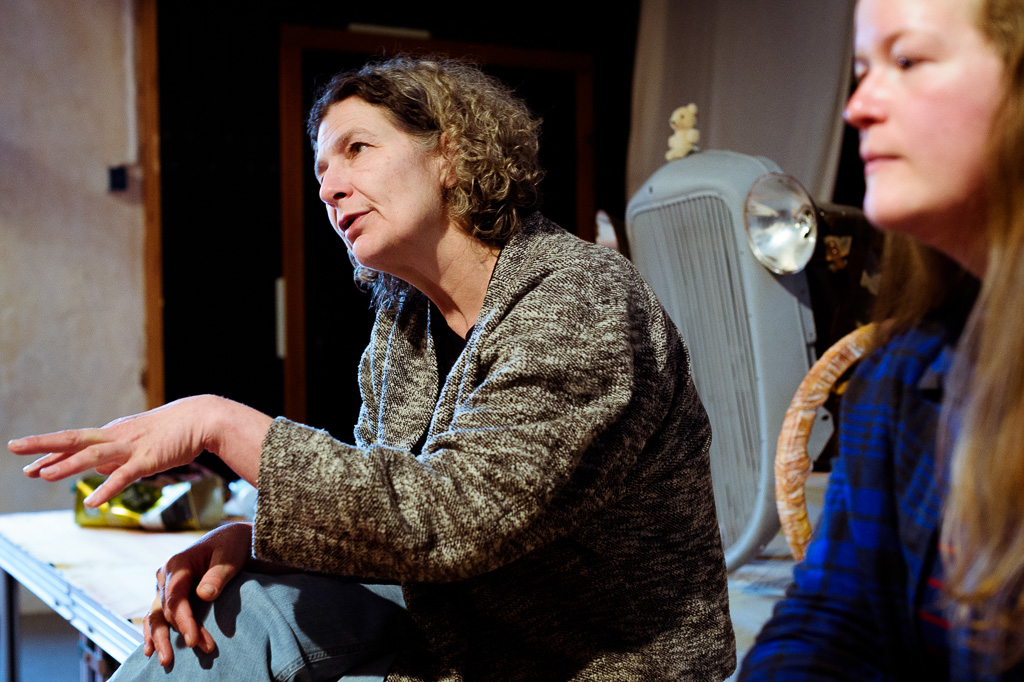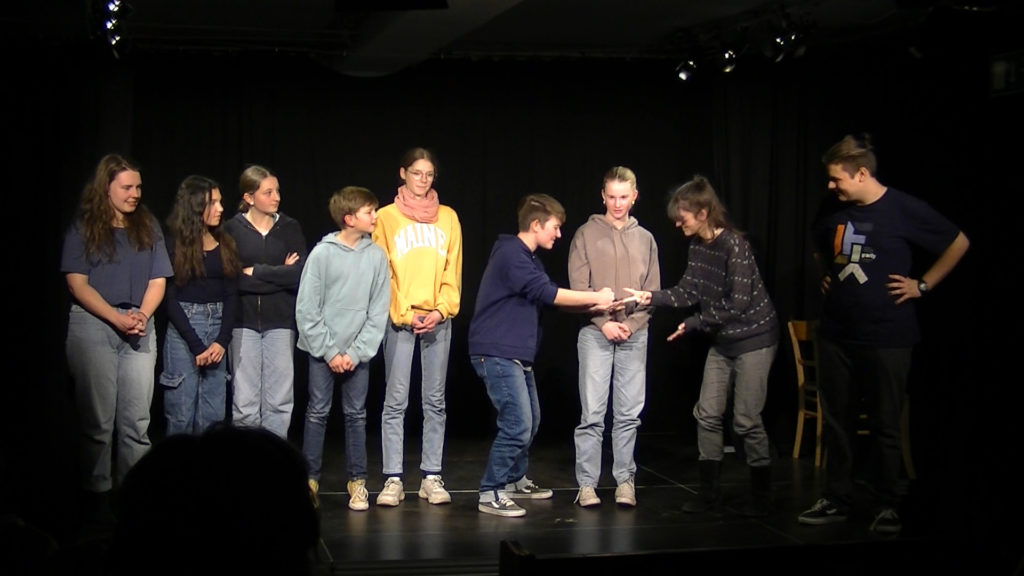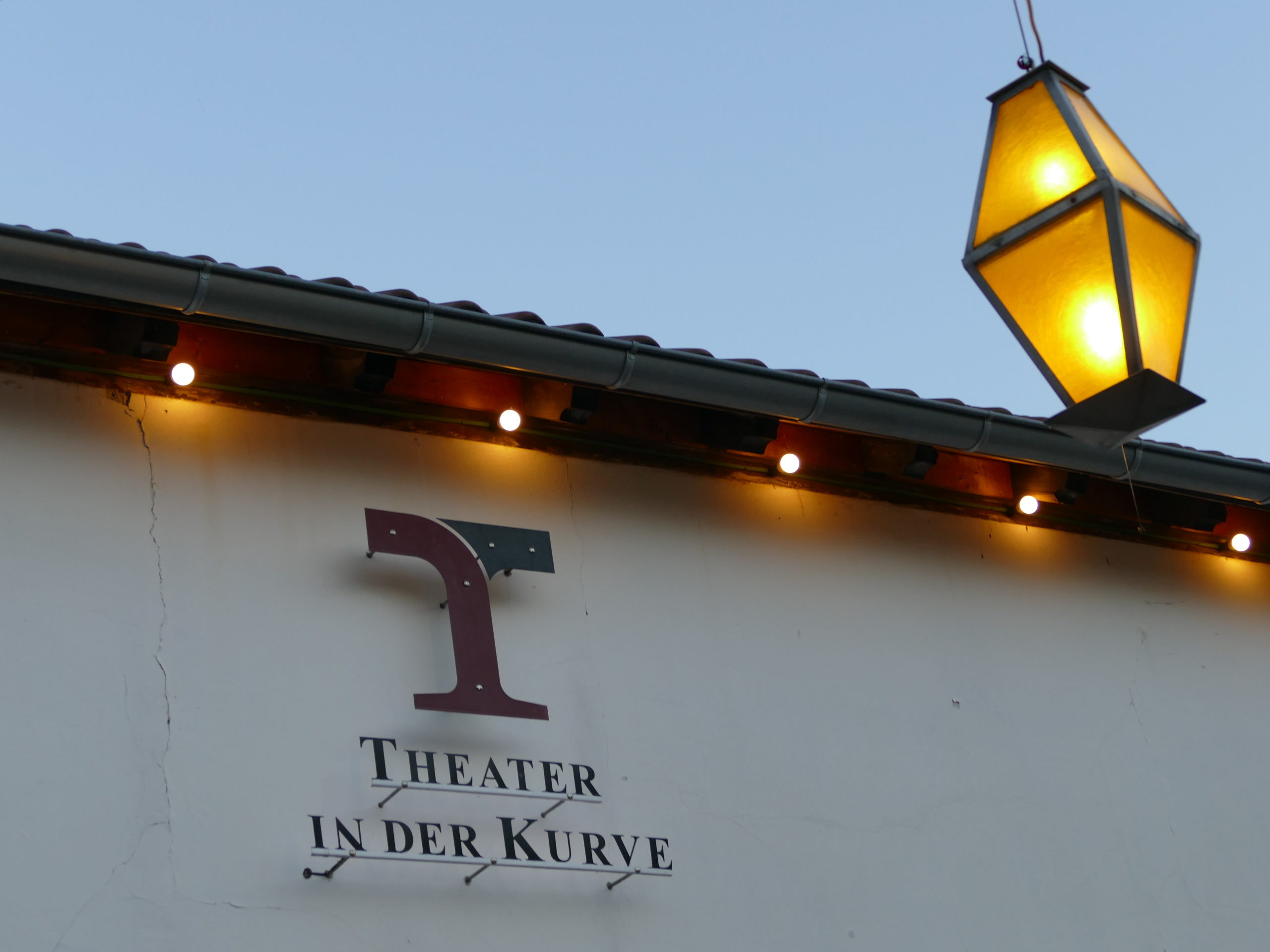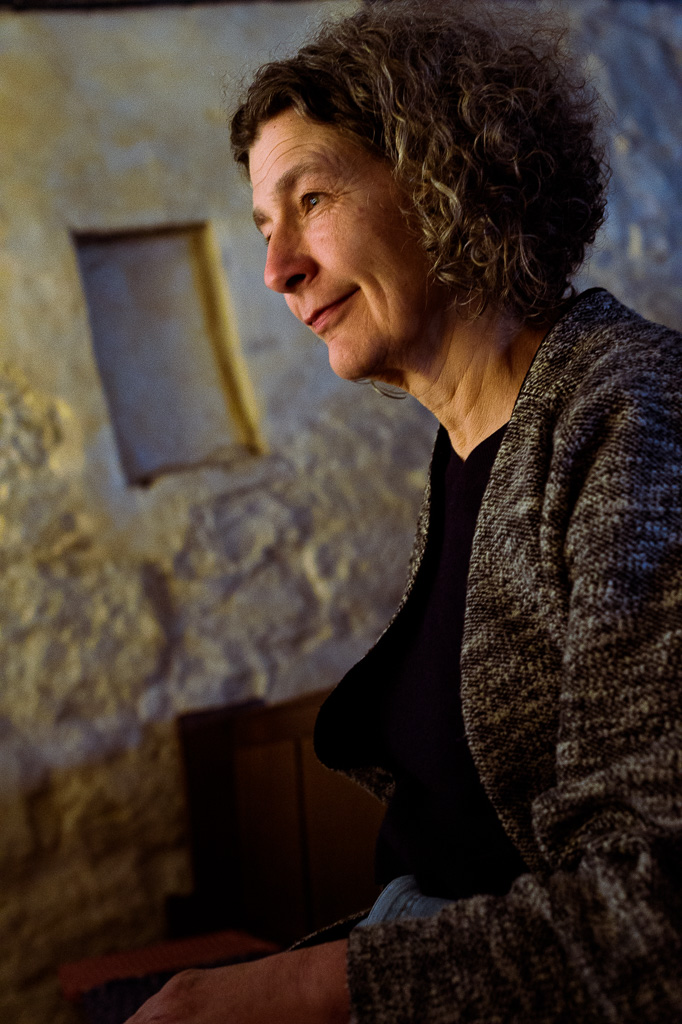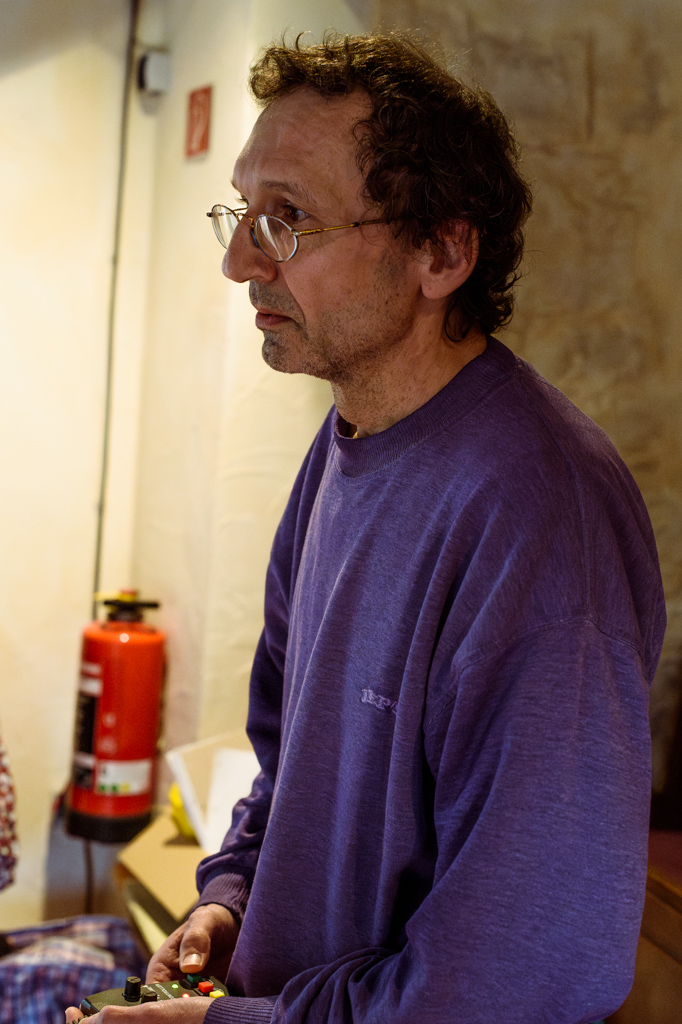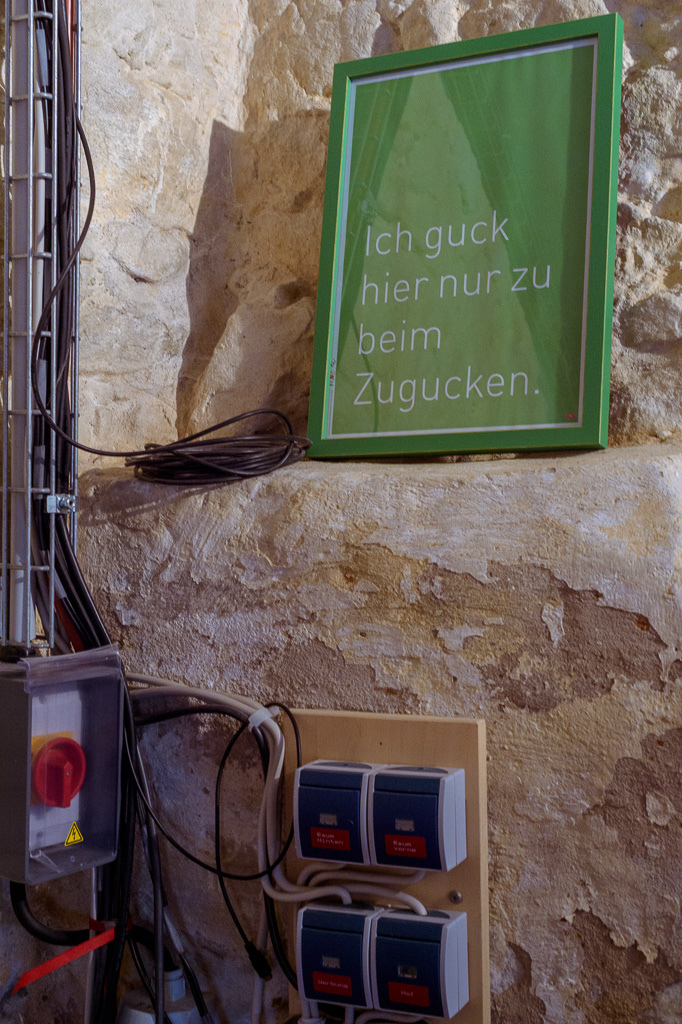Great dramatic art does not need a large theatre. A few square metres are enough to stage the world. Where Else set out in search of gems in the region that also offer a programme over the summer and found off-off-theatres that are run with a lot of commitment, idealism and heart and soul. The Theater in der Kurve, the theatre in the bend, in Neustadt-Hambach is the first place in our small series about them. Set up by Hedda Brockmeyer and Heinz Kindler in a room where wine was once pressed, milk sold and oil stored the theatre can now accommodate up to 50 spectators and offer them a great experience with a carefully curatedselection of plays.
The large barn door leads the way right into the action. Barely inside, barely a step over the threshold, you find yourself next to the stage. A battered canister comes flying in and a man after it. There is a clatter and a rumble, an engine explodes, smoke billows out. The man rolls over and remains motionless. The smoke gradually clears and a woman appears wearing aviator glasses and a leather jacket. Chewing gum, she pushes a vintage car in front of her.

Time to take a breath, look around and get your bearings: a glance back to the entrance door and another ahead to the stage. You are actually standing directly in front of the playing area when you enter the Theater in der Kurve in Neustadt-Hambach. However, it doesn’t always happen that a man falls directly at your feet there. Unless, of course, Christian Birko-Flemming and Leni Bohrmann happen to be rehearsing the opening scene of their play Copper, Flint und der Fabulotor described in the programme as follows: “With a bang, Copper and Flint are thrown out of their vehicle.” This scene makes clear right from the start that a big bang doesn’t need a big stage or elaborate effects. On the contrary. In such a small place, Flint almost literally falls into the audience, making it impossible not to react! A simple ladder truck turns into a great vintage car for this purpose and does a great job.
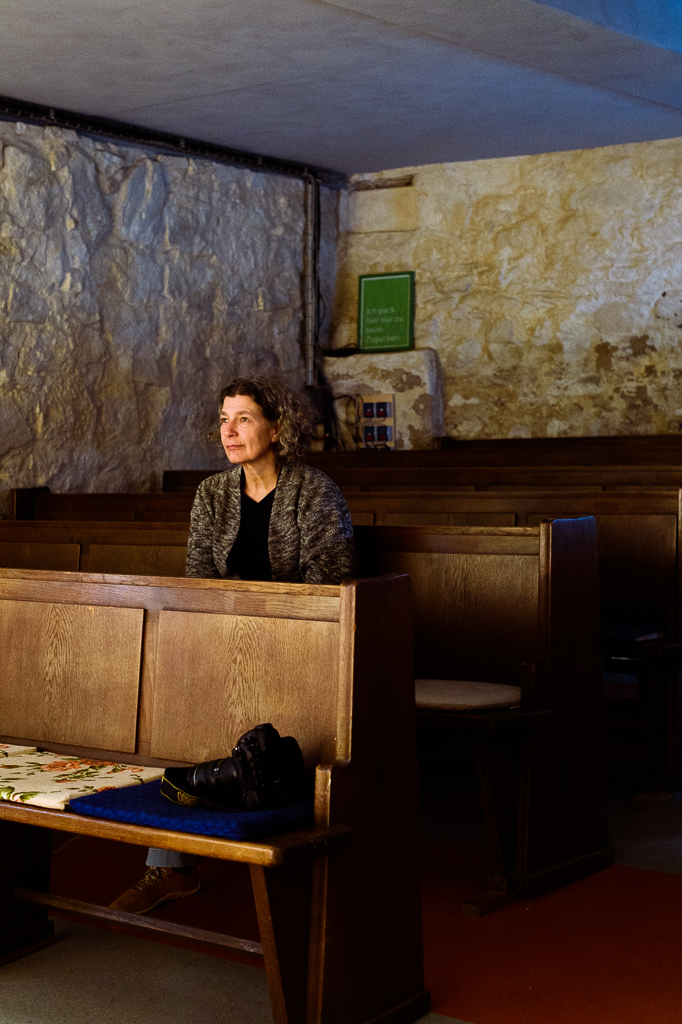
“You have to be a bit inventive,” says Hedda Brockmeyer and laughs. She runs the little theatre with the sixteen-square-metre stage. There is no room for lavish scenery here. “The stage is small and not rectangular. Everything is a bit crooked and slanted.” But with a painted canvas, atmospheric lighting and many lovingly selected and well thought-out props, the producer and the actors and actresses create an entire world even in sixteen square metres. A world that is much more intimate and much closer to its audience than in larger playhouses. “The atmosphere is completely different for us as well,” says actress Leni. “The spectators sit right in front of you. You don’t play to a dark room, but rather see their faces and reactions. Quite intimate. I find this magical.” Even if it requires a lot of concentration. “You’ve got to be authentic. You just can’t cover up mistakes. The audience would notice it.”
